Review
An International Bestseller
Finalist For The 2019 Hilary Weston Writers’ Trust Prize For Nonfiction
“As gripping a memoir as it is a commanding work of journalism. With a scope that ranges from intimate to panoramic, Anna Mehler Paperny expands outward from her own struggles with suicidal thoughts to explore the dizzying array of medical anti-depression treatments that are available around the world. Personable and passionate—and full of raucous, life-affirming humor—the book casts much-needed light on one of the most persistent and mystifying diseases of our time. This is an urgent read in societies such as ours, where, directly or otherwise, everyone’s life is increasingly affected by depression.”—2019 Hilary Weston Writers’ Trust Prize for Nonfiction Jury (Ivan Coyote, Trevor Herriot, and Manjushree Thapa)
“Journalist Mehler Paperny offers a startling and intimate portrait of her multiple attempts at suicide and digs into the disturbingly inadequate ‘toolbox’ available to individuals suffering from acute depression. . . .This earnest and informative volume serves as a frank guide for those dealing with depression.”—Publishers Weekly, starred review
“Told with intimate understanding and heartwrenching humor, the book sheds some much-needed light on the far-reaching impacts of this unpredictable mental illness.”—Book Riot
“Well-researched, engaging, and highly readable. . . . An eye-opening and humane book treatment of a difficult subject.”—Kirkus Reviews
“This book documents [Paperny’s] effort to become acquainted with depression, for the sake of herself and others. She is a fine tour guide, with a reporter’s rigour, strong narrative skills and self-deprecating humour.”—Toronto Star
Hello I Want to Die Please Fix Me
“Raw, frank and dark-humoured. It’s not a story of redemption or triumph. . . . But, in its unpretentiousness, the book is a must-read for those who want to understand what goes on in the heads of those who take their own lives each year . . . and the multiples more who, like the author, come perilously close. Ms. Mehler Paperny does a masterful job of delving into the complexities of living with depression, the challenges of getting the help you need and why it’s so difficult to prevent suicide.” —The Globe and Mail
“In this courageous and honest book, Anna Mehler Paperny plumbs the depths of her own acute depression, and also investigates the cultural, social, and historical discourse around despair. She writes with a stunning fluency that belies the narrative’s underlying pain. This is an insightful and important book.”—Andrew Solomon, author of The Noonday Demon
“This is such an important book. . . . Paperny writes with urgency and intensity because she’s tapping into an essential truth: Everyone deserves dignified mental health care, but systemic injustices create huge discrepancies in how people are treated. I learned so much from this engaging, well-researched, courageous book. It belongs in the canon of ‘must-reads’ to understand mental health treatment today.”—Mark Lukach, author of My Lovely Wife in the Psych Ward
“[Paperny’s] skill as a journalist is evident both in the seamless ease with which she moves from one topic to another and in her ability to break down complex ideas into accessible and engaging prose. . . . It’s hard to imagine any group of people who wouldn’t benefit in some way from reading this book. Those who have been through the system will feel less alone in their experiences, and those who haven’t will gain necessary insight into what it’s like. Paperny ends not with the story of a triumphant recovery or a miraculous cure, but a call to arms: let’s fix this broken system. Her work will go a long way toward helping readers understand just how vital that need is.” —Quill and Quire
Hello I Want to Die Please Fix Me
“The world needs more Anna Mehler Papernys, not fewer. Brave, compassionate, insightful, and wincingly self-aware. Ready to challenge convention, hold feet to the fire, to ‘punch in the face with words,’ as she puts it in her book . . . Anna has announced herself as one of the most tenaciously curious working journalists, working minds, that we have.”—Ian Gill, The Tyee
“Anna Mehler Paperny illuminates the dark corners of suicide and depression with wit and tenacity. Both an extraordinary work of journalism and a poignant, harrowing—and occasionally funny—memoir. Hello I Want to Die Please Fix Me is fearless and necessary.”—Don Gillmor, author of To the River: Losing My Brother
“Compelling . . . a very good book. People coping with depression will find it supportive as well as entertaining—Anna has a great sense of humor. I also think it will help educate the public.”—Dr. Marcia Valenstein, MD, MSc, psychiatrist at University of Michigan Hospitals and Veterans Affairs Ann Arbor Healthcare System
“A remarkable book. . . . I am just so impressed by Anna’s honesty and rigor, her courage, her thorough research, her insight, her wisdom and her sense of humor. I hugely admire what she has achieved. I am sure it will be a great help to many people, and I have come away with new understanding after reading her book.”—Dr. Irfan Dhalla, MD, MSc, vice president of Health Quality Ontario, St. Michael’s Hospital
Hello I Want to Die Please Fix Me
“Anna’s the best journalist I know. Her story about the mental health care–system, as seen through her own experience, is an act of monumental bravery. This is a book that will save lives.”—Omar El Akkad, author of American War
“Clear-eyed without being dispassionate, this book has so much to offer even the most well-versed in mental health issues. Anna Mehler Paperny goes far deeper than the surface conversations we usually have about depression, giving us the unvarnished reality of what it means to live with the feeling you want to die. Brave and brilliantly researched, this powerful book is poised to create real change, and is an absolute must read for those who have had their lives touched by depression—which is everyone.”—Stacey May Fowles, author of Be Good and Baseball Life Advice
About the Author
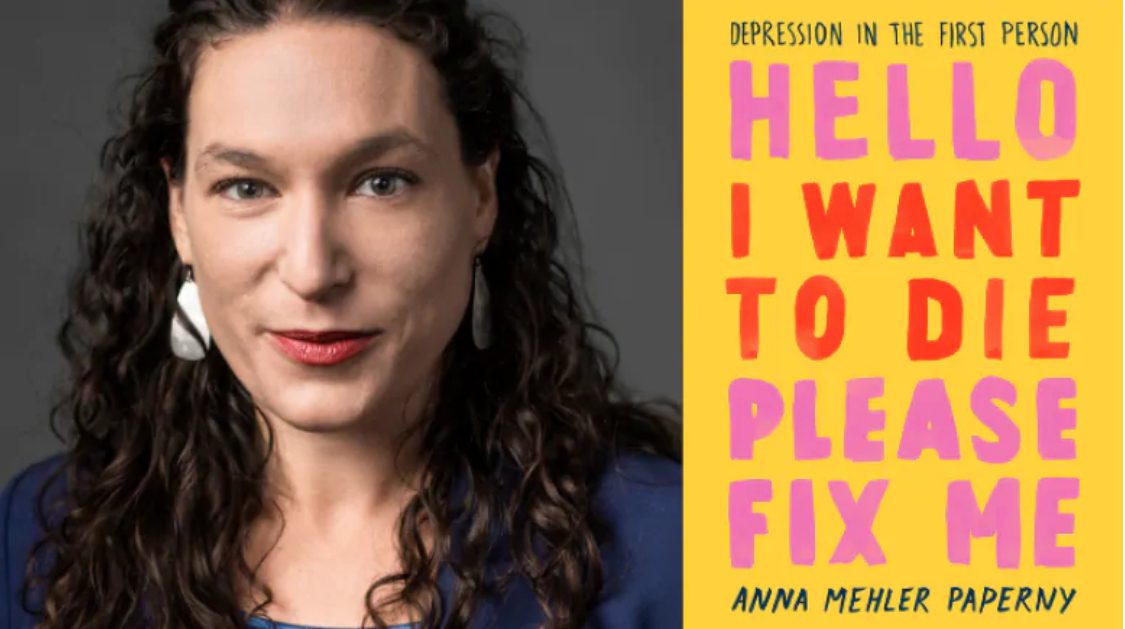
There is no irony in the title of Anna Mehler Paperny’s first book, Hello I Want to Die Please Fix Me. It is as straightforward and candid as the entire book, which chronicles the Toronto journalist’s many attempts at suicide and the treatment she received in the aftermath.
Mehler Paperny often takes breaks from her story to reveal her comprehensive research on depression and discovers how little progress science and society has made in treating those with mental illness.
Hello I Want to Die Please Fix Me is a finalist for the 2019 Hilary Weston Writers’ Trust Prize for Nonfiction. The winner will be announced on Nov. 5, 2019.
Mehler Paperny spoke to CBC Books about why she wrote Hello I Want to Die Please Fix Me.
Writing to help herself, and others
“I was in the throes of depression and overcome with despair on a regular basis. To cope with that, I would sometimes write down what I was going through, what I was feeling. I was already using writing as an outlet. It occurred to me that, given the commonality of the illness, the prevalence of it, what I was going through might be useful to other people as well.
“At the same time, I realised I had a lot of questions about the illness: how it worked, how the treatments worked, how good or bad we are at intervening at certain times. Those were things I wanted to find out and I thought other people might also have those questions.
“I also felt that there was something missing in the discourse. We had this polarisation between redemptive narratives and anti-psychiatry screeds and academic dissertations. But we didn’t have anything that straddled those different genres — something that took a blunt approach and tried to explode misconceptions around this.”
Searching for answers
“I was surprised how little we know about depression. I was also surprised by how bad we are at applying what we do know. We fumble along and make the same mistakes and the results of that can be fatal. We don’t know how depression works. We don’t know where it comes from. We don’t know really what’s going on in the brain.
“You want someone to tell you, ‘This is what we know. This is how it works. We’re quite certain of this. These are the answers.’ I didn’t get that. It made me feel frustrated, but also a little bit validated at the same time. That was comforting in a sick way. Nobody knows anything. Everybody’s clueless. I’m not the only one fumbling around in the dark here.
In Canada, we don’t cover psychologists, we don’t cover psychotherapists and, for the most part, we don’t cover drugs. Those are the main ways that we treat depression and mental illness.– Anna Mehler Paperny
“What we do know is that early, comprehensive intervention makes a big difference. Intervention both with pharmacotherapy and psychotherapy is, for most people, the most effective option. Yet, we don’t do that. We make people wait, sometimes months or years, before getting effective treatment. In Canada, we don’t cover psychologists, we don’t cover psychotherapists and, for the most part, we don’t cover drugs. Those are the main ways that we treat depression and mental illness. If you don’t have private insurance, you’re often out of luck when it comes to getting care.
“I was lucky in that when I was first in the hospital I was assigned a psychiatrist who stuck with me after I was discharged and kept seeing me for years. That made a huge difference that basically kept me alive. A lot of people don’t get that. The transition from inpatient to outpatient care is incredibly precarious. If you don’t get hooked up with a psychiatrist, as many people don’t, you’re often lost to care.”
Anna Mehler Paperny first tried to kill herself when she was 24 years old, just as she was finding success as a journalist. In her new memoir, Hello I Want to Die Please Fix Me: Depression in the First Person, she talks unflinchingly about her experience with depression and tries to better understand the illness. 20:11
Challenges of writing
“Editing [was a challenge] because we had to probe and deconstruct all this personal stuff that I’d written. It was surprisingly painful. It was cathartic to write it. It felt like a relief to get it down on paper. But having to go back and ask questions of it, like, ‘Why is this here? What am I trying to say? Is this consistent with what I’ve said elsewhere?’ Asking those questions about this personal information was incredibly difficult. The reporting was a challenge. It was a challenge trying to find people who could address the questions that I had.
There’s more we can do. It’s not hopeless.– Anna Mehler Paperny
“I pace a lot. Building in time to put down what you’re doing and take a breather, I think is important. You can’t always power through and do nothing but work. There are times when you need to sort of take a second, go for a walk and take a deep breath. Building in those periods was helpful.“
Takeaways
“There were things that I added because it felt necessary to cover them. Talking about children and depression and suicide, talking about Indigenous communities and suicide — those were issues I discovered and realized I needed to address. It became less about me as it went along, which I think is good because I’m not that interesting. The most urgent issues are not personal, they’re systemic issues. They are issues around systemic discrimination and systemic inequities. I’m glad I got a chance to address those, even a little bit.
The most urgent issues are not personal, they’re systemic issues.– Anna Mehler Paperny
“I hope people take away how common and debilitating this is. How the suffering is mitigatable, but we fail to mitigate it. There’s more we can do. It’s not hopeless. It’s not hopeless on an individual level, but it’s also not hopeless on a societal level either. The challenges are there and they’re huge, but we can address them and the need to address them is urgent.”
Anna Mehler Paperny’s comments have been edited for length and clarity. You can read more interviews in the How I Wrote It series here.



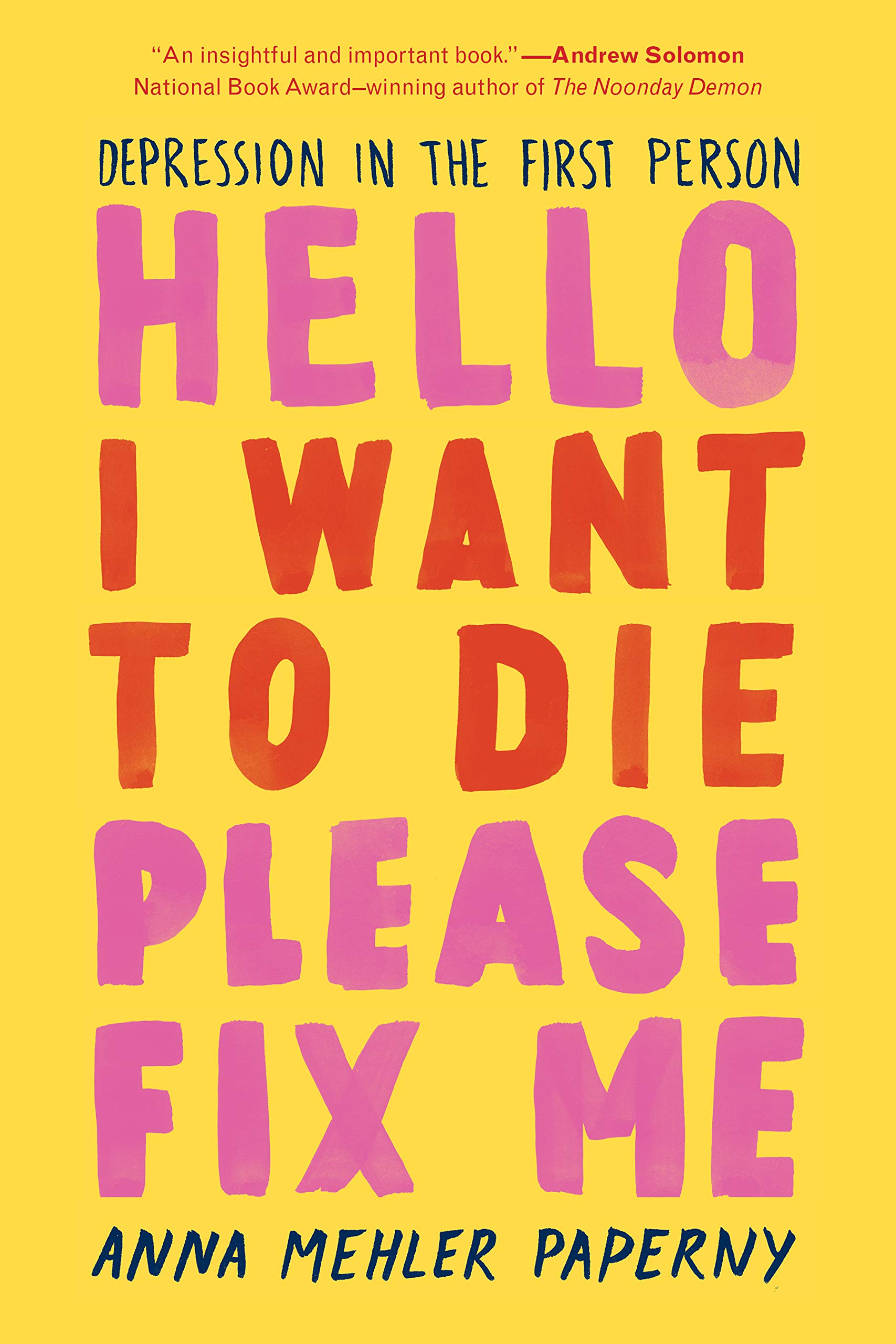
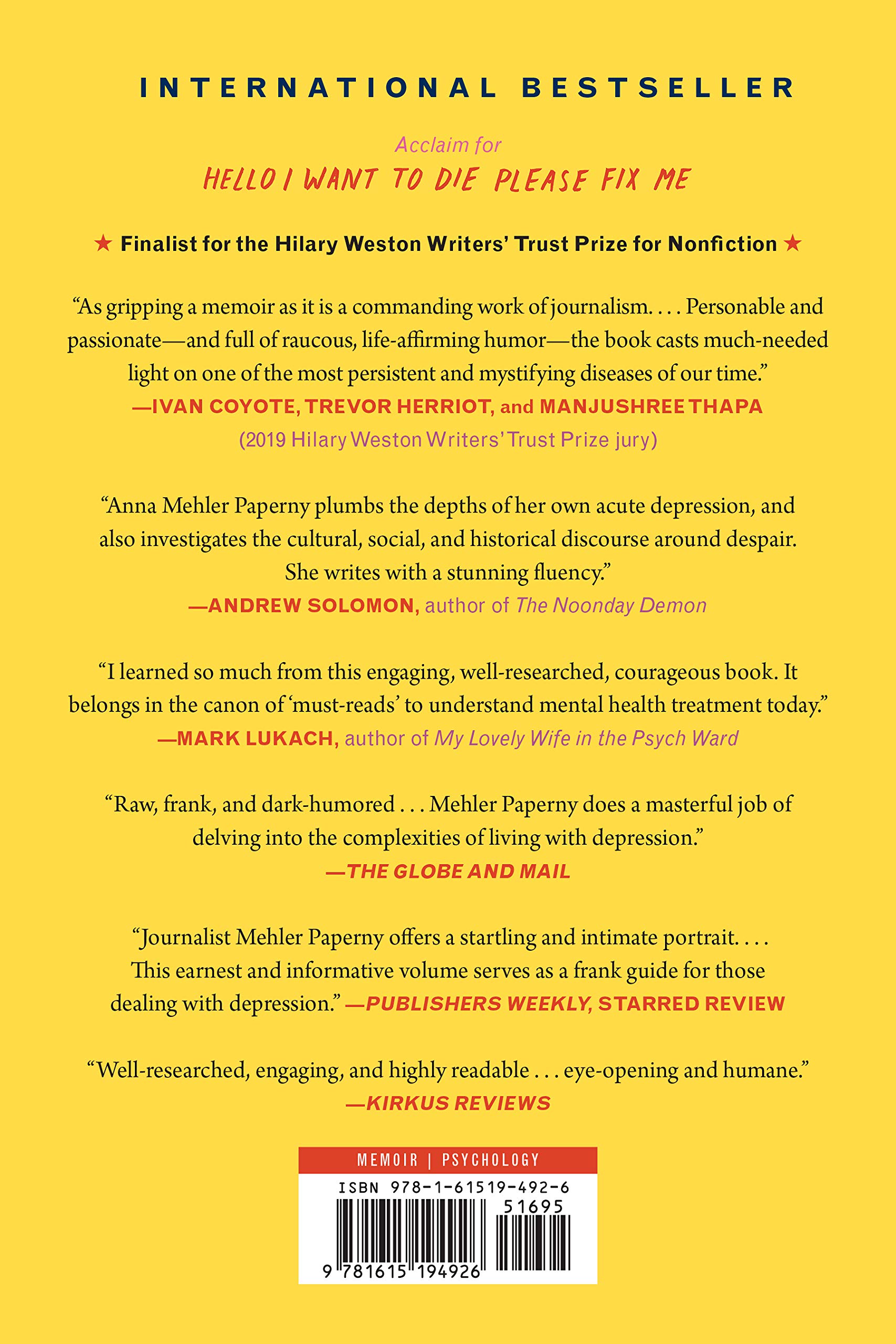
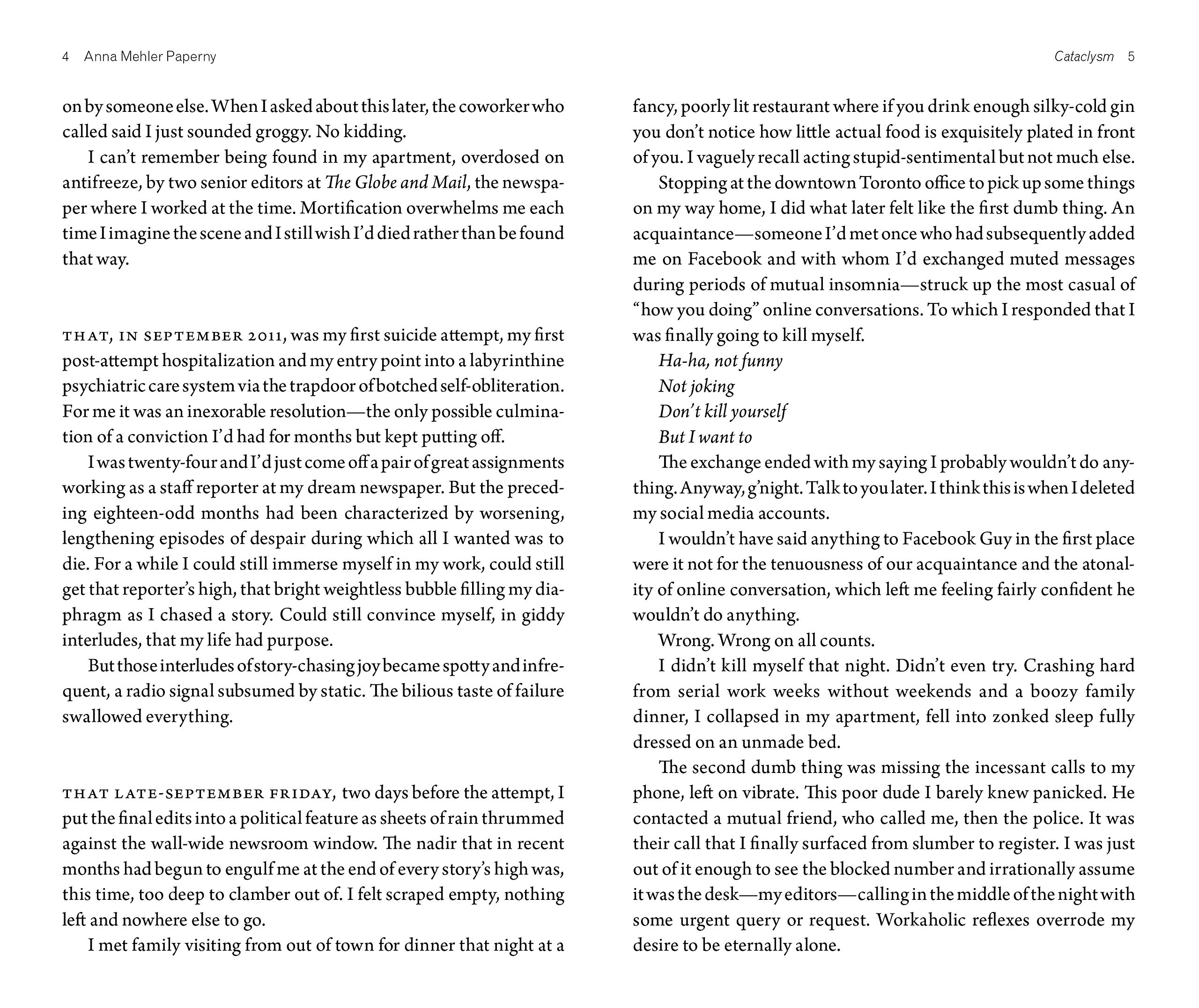
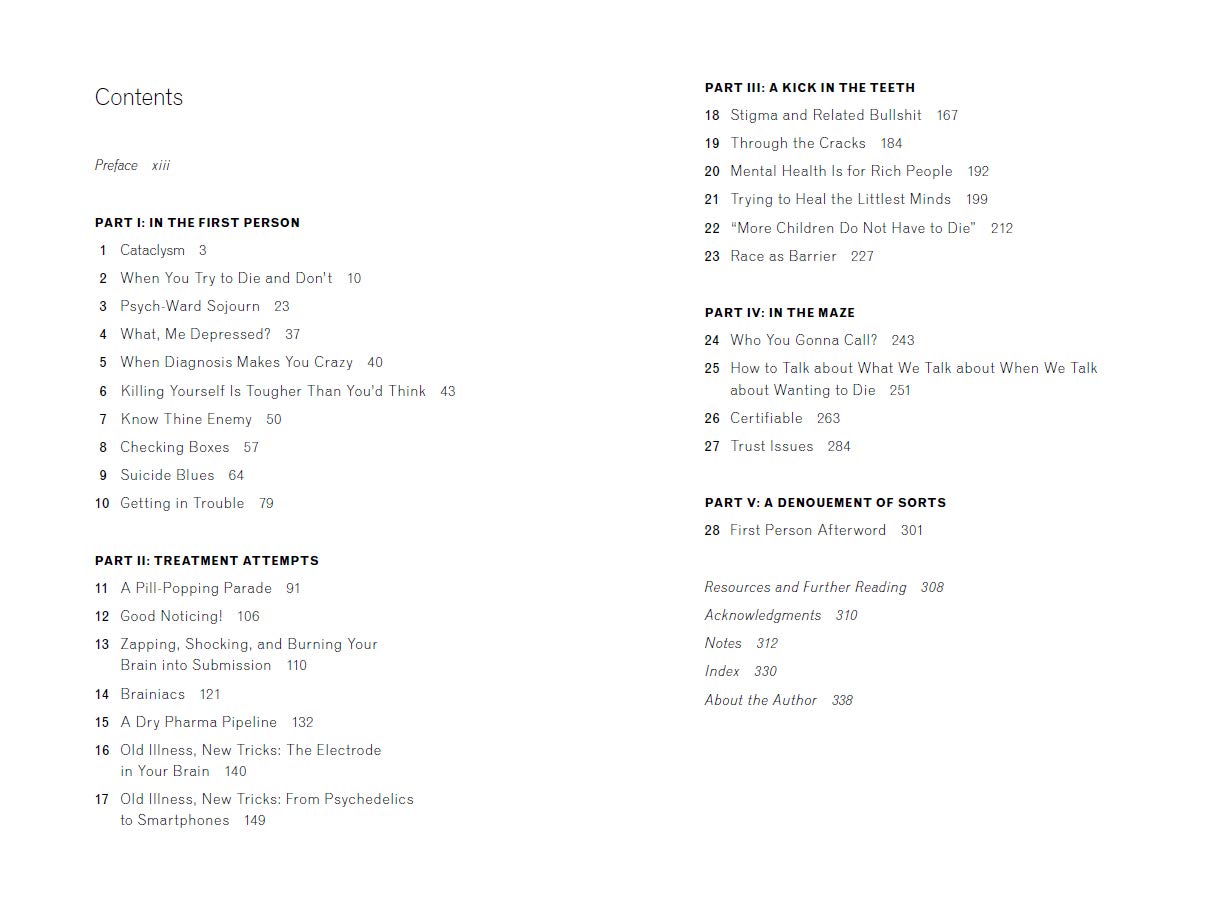
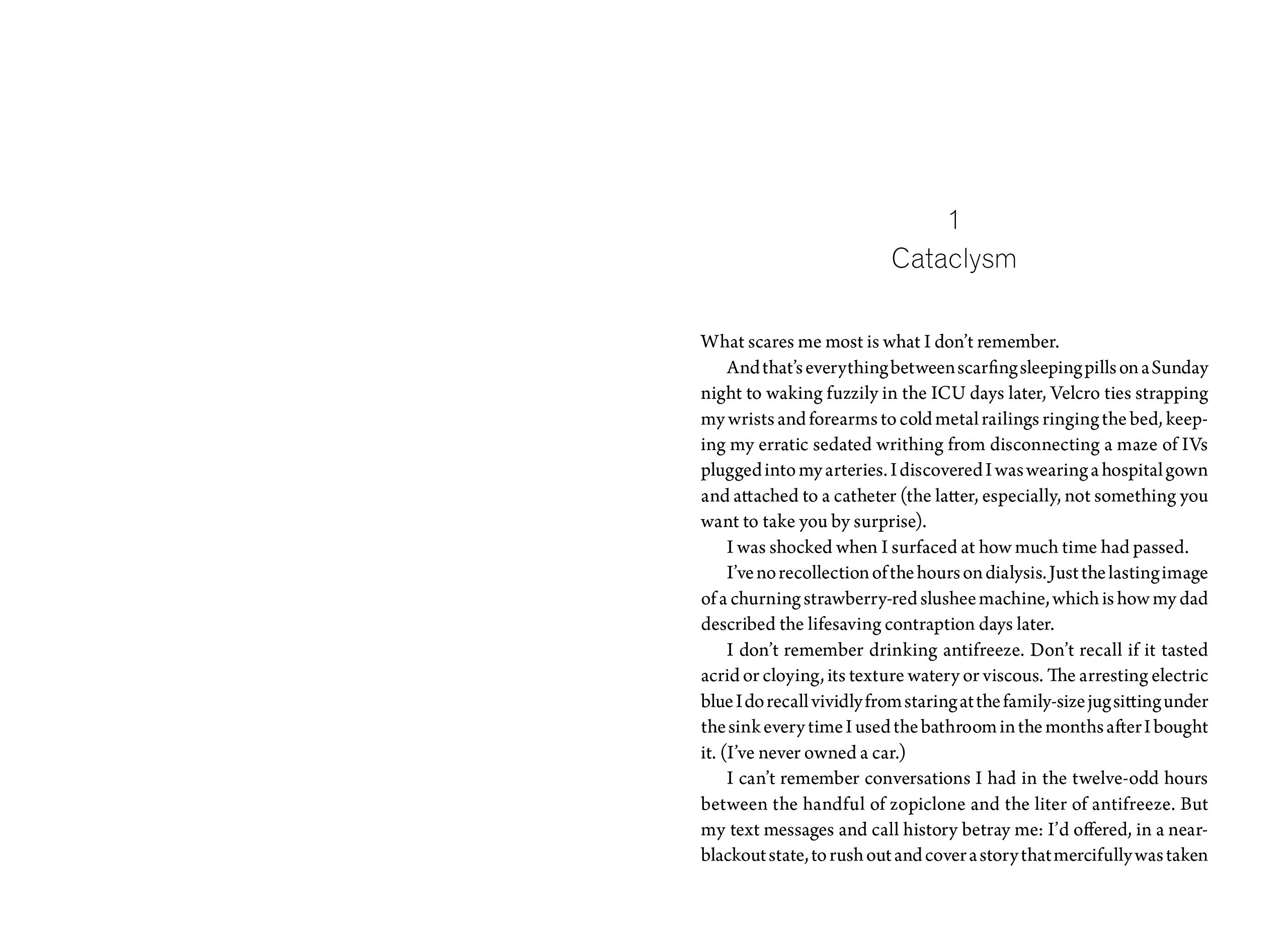
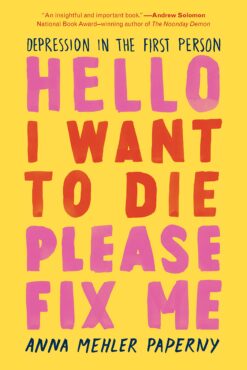

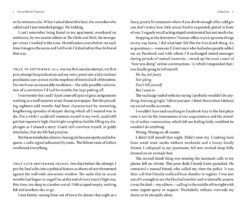

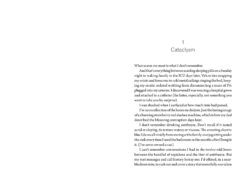


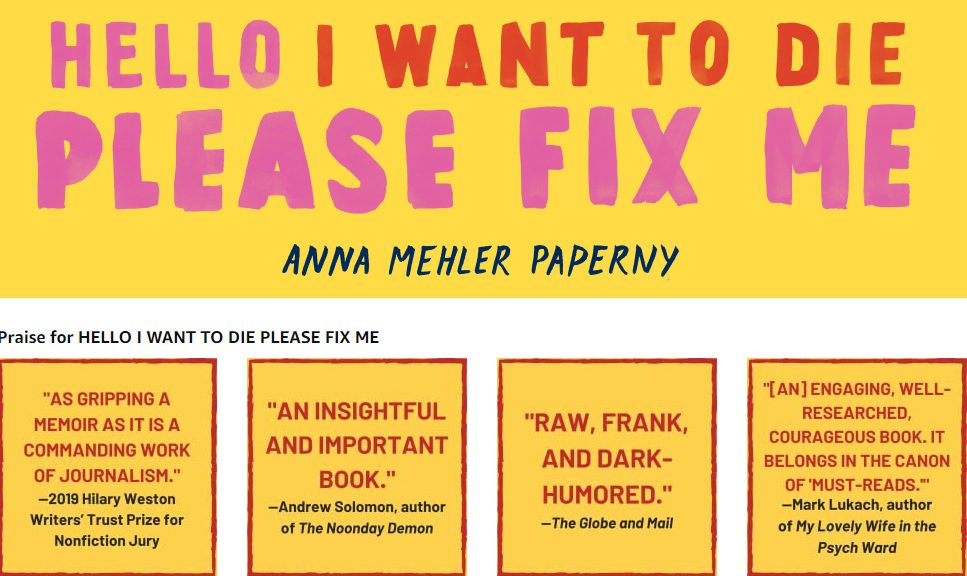









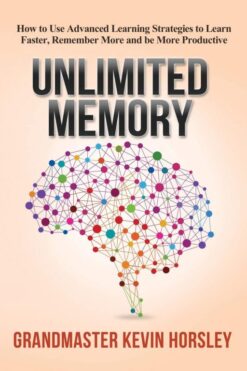






Reviews
There are no reviews yet.